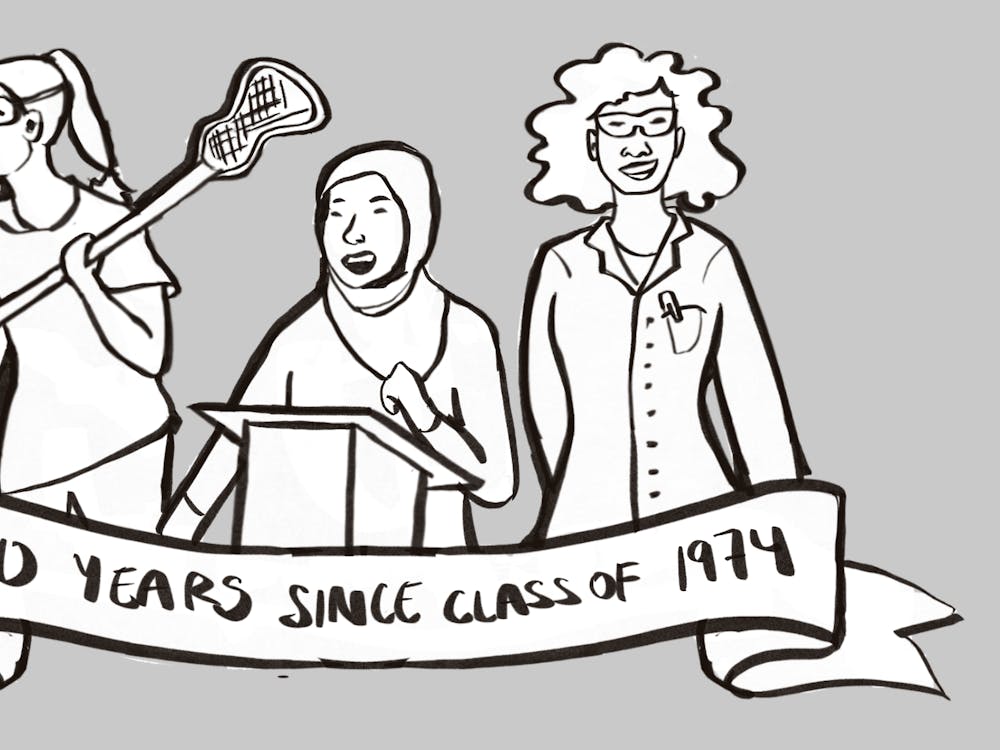The Women’s March on Washington was fraught with problems from the very start. It was originally called the Million Women March, but black feminists pointed out that the Million Woman March had already occurred in Philadelphia in 1997. The organizers changed it to the Women’s March on Washington, which was then accused of co-opting the name of the historically important 1963 march.
The original organizers were all white women who were luckily replaced by a more diverse group after much controversy. The March accepted the endorsement of pro-life groups, then dropped the endorsement; The March supported the sex workers’ rights movement, then dropped their support, then re-added their support and so on.
Yet on Jan. 21, the March was a major success, with about 500,000 marchers in Washington D.C. and an estimated five million people worldwide.
As a socialist, I did not like the March’s concentration on Hillary Clinton and the Democratic Party. As a white woman, I was concerned about perpetrating the white supremacist feminism that Clinton and the original organizers of the March embody. Afterwards, I was willing to ignore it and move on with my own political activism. However, I have since decided to embrace the March.
No matter how ideologically pure I want to be, millions of people marching against the establishment (or the “Man” if you will) is a good thing. Mass protest is one of the few positives to emerge from the Trump administration. I hope the environment for mass radicalization of liberals is upon us. So as a 20 year old with no credentials besides being politically active for a few years, here are my recommendations for the Women’s Marchers and first time protesters.
1. Stop working with police.
The Women’s March’s decision to work with police is probably my biggest grievance. The Movement for Black Lives (and other political movements) has been pointing out the problems with working with the police for years. I present my hometown, Cleveland, as a case study:
The Cleveland police engage in a pattern of unnecessary and excessive use of deadly force, less lethal force and excessive force against mentally disabled people. The heartbreaking murder of Tamir Rice at the hands of the Cleveland police is a tragic example. The Cleveland police union endorsed Donald Trump. By all accounts, the Cleveland police are a white supremacist, murderous force. By working with the Cleveland police, the Women’s March chose to ignore these injustices and ally themselves with white supremacy. So next time, don’t work with the cops.
2. Leave the patriotism at home.
We get it, you love America. But maybe think about why some people might not. Singing the “Star-Spangled Banner” at a protest might seem like a good idea, until you remember that the “Star-Spangled Banner” was written by a slave-owner, and our national anthem references slavery.
Similarly the whole “patriotism” thing should feel uncomfortable when you remember that the United States is a settler colonial state built upon still-existing indigenous nations. I read several accounts from native women of feeling disgusted upon seeing blatant displays of patriotism at anti-Trump protests. So at the very least, leave your patriotism at home.
3. Similarly, leave Hillary at home.
Look, Hillary lost. She’s currently getting high in the woods somewhere with Bill or chumming it up with the Trumps at the inauguration.
We all have different long-term goals. Liberals want another Democratic president, socialists want a socialist revolution (and harm reduction until the revolution happens, which is probably not anytime soon) and anarchists want us to all to smoke pot and run around naked or something.
But we share short-term goals: to oppose the conservative agenda and Trump, to protect immigrants and refugees, stop the privatization of schools, stem the tide of climate change, etc. Invoking Clinton alienates many who can help you accomplish your short-term goals. If I can temporarily put aside my hammer-and-sickle, you can put aside being a “nasty woman” or being “With Her.”
4. Tap into what organizers are already doing.
Moving forward, this is probably the most important point for newly involved protesters to realize. People have been opposing deportations, corruption, environmental harm, etc. for years before Trump assumed office.
Working with people who have experience is extremely advantageous: They already have connections, infrastructure and an ideological framework. Don’t reinvent the wheel.
As much as I would like to bask in socialist ideological purity, ignoring the mass anti-Trump protests would be a mistake. Radicals like myself must work with the newly political and the anti-Trump movement even if we have different long-term goals (especially on a campus like Hopkins where being ideologically pure will have me languishing, protesting by myself).
If you are a new protester or just paying attention to politics, I welcome you and I hope you stick around. Hopefully if some of this advice is taken and people continue to come out into the streets, we can move forward to a more just and kind world.
Emeline Armitage is a junior International Studies major from Cleveland.






















Please note All comments are eligible for publication in The News-Letter.